Tag Archives: NMFS
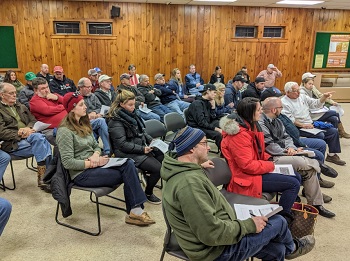
New Hampshire: Lobstermen lament coming whale entanglement regulations
Seacoast lobstermen weighed in on the proposal at a meeting Thursday night in Portsmouth with the state Department of Fish and Game. They’re still skeptical that their fishery poses enough of a threat to the whales to merit new regulations. And they want more details and input on the new, more easily breakable lines or gear they’ll have to use to keep whales from being entangled. >click to read< 07:10
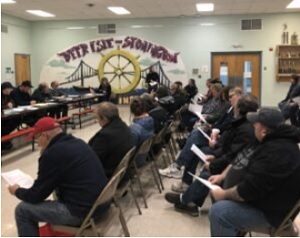
Lobstermen throw cold water on Maine state plan to protect whales
Fishermen in the heart of Maine’s $485 million lobster industry don’t like a state proposal to protect endangered right whales from buoy lines, arguing that it forces them to give up too much to fix a problem they aren’t causing.About 75 people packed a local lobster board meeting in Deer Isle on Thursday night to vent about the plan, which they argue is overly complicated, puts them in danger and is unlikely to help the species it is trying to save. >click to read< 09:40

Maine Department of Marine Resources Submits Right Whale Proposal to NMFS
In response to requirements under the Marine Mammal Protection Act (MMPA) and the Endangered Species Act (ESA), the Maine Department of Marine Resources (DMR) has submitted a proposal for regulatory changes to the National Marine Fisheries Service (NMFS) in advance of federal rule making. >click to read< 13:21
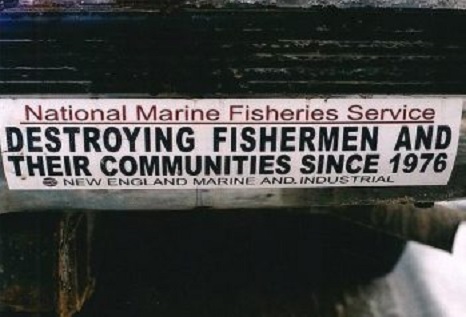
Have you had enough?
Since its inception in 1976, the agency charged with managing our fisheries, the NMFS, has overseen their decline, a decline which in most cases was a product of their own machinations.Usually most ideas the government has for managing our lives are well intended but terribly executed, this was a prime example. NMFS, for all that it was intended to be and do for our fisheries, has failed and in some cases, this wasn’t by mistake, but by design. By John Rice, >click to read< , and the comment venue is open there! 13:37
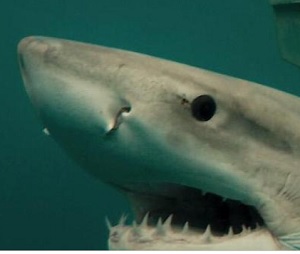
Uncle Sam wants you to eat more shark
Late last month, the National Marine Fisheries Service (NMFS) sent out a newsletter,, “While overfishing has greatly depleted some shark populations overseas, U.S. shark fisheries are some of the most sustainable in the world,” it read. I did a double take, racking my memory for the last time I saw shark as an option at the grocery store or on a restaurant menu.,, So why is NMFS encouraging eaters to eat more shark? Pointing to its strict fishing quotas, the agency suggests that eaters buying American-caught shark can now do so without guilt. >click to read< 07:19
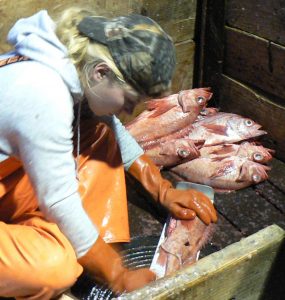
North Pacific council votes to hike observer fees in 2021
The costs for on-board fisheries observers will be increasing, and no one in the industry is particularly happy about it. The North Pacific Fishery Management Council voted to adjust the observer fee percentage to 1.65 percent of ex-vessel values. It was previously set at 1.25 percent. The increase is intended to cover additional observer services to reach the target coverage rate set out by the council for the various fisheries across the North Pacific region. >click to read< 14:15
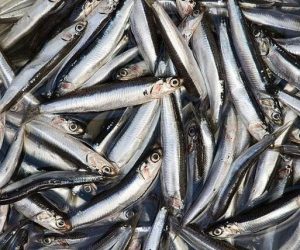
Sides battle over Monterey Bay’s anchovy population
A fishing industry group says it has new findings supporting its contention that there is a healthy population of anchovies, which is counter to a nonprofit’s lawsuit challenging how the number of anchovies are determined. Meanwhile, Monterey fishermen say there are tons of the little guys in the local fishery. Gino Pennisi and Neil Guglielmo have been fishing out of Monterey for years, in Guglielmo’s case, since 1956. Both say anchovies are plentiful. But the nonprofit group Oceana,,, >click to read< 13:07
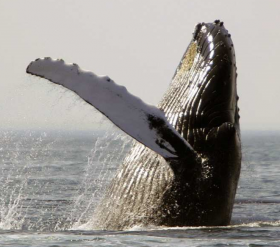
Feds Tap 300,000 Square Miles of Pacific for Humpback Whales
The proposed rule is the result of a settlement with the National Marine Fisheries Service, who were sued last year for not following through on a 2016 plan to designate two groups of Pacific Ocean humpback whales as endangered and a third group as threatened. The Center for Biological Diversity, joined by Turtle Island Restoration Network and the Wishtoyo Foundation, filed a federal lawsuit in the Northern District of California claiming the lack of action by the Trump administration violated the Endangered Species Act. >click to read< 16:25

NOAA answers lobstermen’s critique of whale rules science
NOAA Fisheries released a more detailed response Wednesday to criticisms of the science it used to develop new protections for North Atlantic right whales,,, The response was attached to a letter from NOAA assistant administrator Chris Oliver to Patrice McCarron, executive director of the Maine Lobstermen’s Association. (The letter is attached at the article) >click to read< 14:50
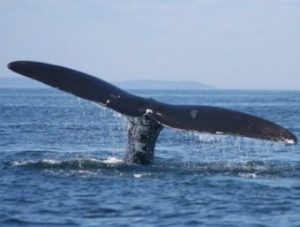
Eighteen scientists, environmentalist, blast Maine lobstermen’s stand on whale safety
“Reducing entanglement in East Coast waters of the United States is a critical part of a comprehensive strategy for right whale survival and recovery,” Scott Kraus, chief scientist for marine mammals at New England Aquarium’s Anderson Center for Ocean Life, and Mark Baumgartner, associate scientist at Woods Hole Oceanographic Institution and chairman of the North Atlantic Right Whale Consortium, said in a letter Tuesday to Sen. Susan Collins, R-Maine. >click to read< 19:44

LePage And The Whales
Fisheries managers from the National Oceanographic and Atmospheric Administration (NOAA) are developing new rules that are likely to fall heavily on the lobster industry in New England, especially in Maine, where fishing activity is greatest.,,, Maine’s lobstermen and lobsterwomen found an ally in former Gov. Paul LePage, who recently wrote an op-ed in The Wall Street Journal decrying the proposed rules as misdirected and unnecessary. >click to read< 13:14
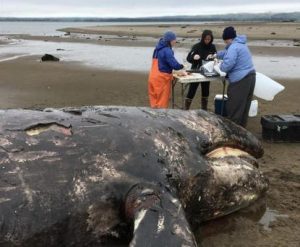
Whale entanglments are down on the West Coast. The reason for the reduction is in question.
According to the NOAA, as of Aug. 23, the National Marine Fisheries Service reported 17 confirmed whale entanglements in 2019, compared to 40 for the same period a year prior.,,, The reason for the sharp reduction in entanglements is in question.,,, Pieter Folkens, a permitted whale disentangler for NOAA, said the Center for Biological Diversity’s claim of victory is premature. He said shortening the crab fishing season had little influence on the number of entanglements this year. >click to read< 11:01
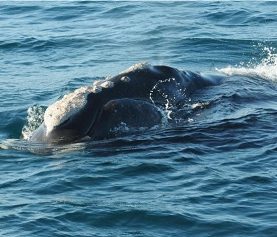
IFAW Officials Disappointed with Lobsterman Association’s Position on Whale Issue
The Yarmouth Port-based International Fund for Animal Welfare is expressing disappointment for the Maine Lobstermen’s Association decision to withdraw its support for the Take Reduction Team Agreement concerning right whales. The association withdrew support last week due to what it calls “serious flaws in the data” presented during the agreement process.,, The MLA review of the data also found that current whale protection measures have been effective. Changes to the right whale plan in 2009 and 2014 resulted in a strong downward trend in the incidence of entanglement cases involving U.S. lobster gear, from seven cases prior to 2010 to only one case since then. >click to read< 12:40
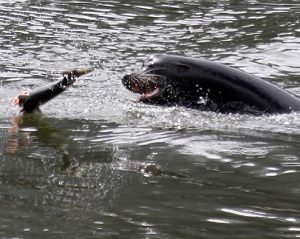
Proposal would kill more sea lions to protect fish
More than 1,100 sea lions could be killed annually along a stretch of the Columbia River on the Oregon-Washington border to boost faltering populations of salmon and steelhead, federal officials said Friday. The National Marine Fisheries Service said it’s taking public comments through Oct. 29 on the plan requested by Idaho, Oregon, Washington, and Native American tribes. The agency says billions of dollars on habitat restoration, fish passage at dams and other efforts have been spent in the three states in the last several decades to save 13 species of Columbia Basin salmon and steelhead protected under the Endangered Species Act. >click to read< 13:43
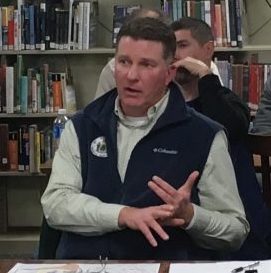
Maine: Second round of meetings scheduled on right whale issue
Earlier this week, DMR Commissioner Patrick Keliher announced that he would hold a second round of meetings with each of the state’s seven Lobster Zone Management Councils to consider area-by-area suggestions of how to deal with the National Oceanic and Atmospheric Administration’s proposed rule that would require a 50 percent reduction of vertical endlines on lobster traps in much of the Gulf of Maine. >click to read< 11:27

BOURNE: Lobstermen seek help in protecting right whales, Testimony cites burden on local industry.
Commercial lobstermen urged federal regulators Wednesday to take Canada to task for its failure to protect North Atlantic right whales and to remember that local lobstermen carrier a heavier burden of regulation than others in U.S. waters. “We as lobstermen do not want to see harm come to the right whale,” Plymouth lobsterman Tom O’Reilly said at a public forum at Upper Cape Cod Regional Technical School, the eighth in a series of meetings held this month,,, >click to read<08:40
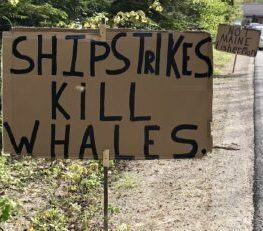
Lobstermen, environmentalists weigh in on right whale rules
Some of the largest and most powerful animal and environmental groups – including the Pew Charitable Trust, the U.S. Humane Society, the Conservation Law Foundation and Oceana – sent representatives to the hearing. They urged National Marine Fisheries Service to take immediate action to protect the whale, including proposals that even the team tasked by the fisheries service to come up with its whale protection plan had dismissed, such as offshore closures and ropeless lobster fishing. >click to read< 20:58

Opinion: Responsible Offshore Development Alliance Statement on Vineyard Wind Federal Review Process
In light of the recent decision by the Bureau of Ocean Energy Management (BOEM) to perform a cumulative impacts analysis regarding the proposed Vineyard Wind project, and the recently released communications between that agency and the National Marine Fisheries Service (NMFS), RODA would like to clarify certain statements and representations. >click to read< 08:27
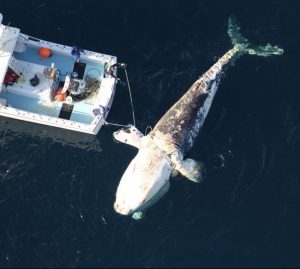
Ships are getting speeding tickets in the Chesapeake Bay to protect right whales
Eight years ago the COSCO Nagoya, a giant ship capable of carrying more than 4,000 cargo containers, was motoring around the Chesapeake Bay when it ran into a speed trap. Three months later, the Nagoya got dinged again for speeding, this time near the Port of Charleston. Over the next several months, the Nagoya was caught 13 more times up and down the east coast, from South Carolina to New York. Each speeding violation came with a price tag of $5,750 for a total of $86,250 in fines. >click to read< 13:43

Lobstermen enjoy star-studded show of support in Stonington
The empire strikes back! That would be the Maine coast lobster empire.,,, Last Sunday, lobstermen, their friends and families gathered on the pier in Stonington to let loose about regulations, bureaucrats and the horse they rode in on. They came from all over the Downeast coast, several hundred strong, and stood in a baking sun for two hours, first to bear witness to the shortcomings of federal research and then to listen to a star-studded roster of Maine politicians pledge their support for the lobster industry. >click to read< 11:08
From the Legislature: Lobsters and Right Whales, Rep. Allison Hepler – >click to read<
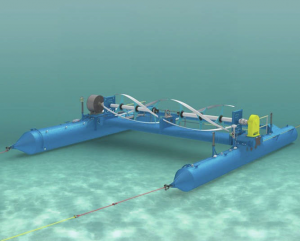
Southwest village prepares to harness river in harmony with salmon
A small Southwest Alaska village is trying to integrate the power of an iconic Alaska river into its electric grid without interfering with the millions of salmon that rely on the same water. The Village of Igiugig and Maine-based Ocean Renewable Power Co. are in the midst of a years-long partnership to refine and eventually utilize the company’s RivGen Power System generator in the Kvichak River. >click to read<14:29
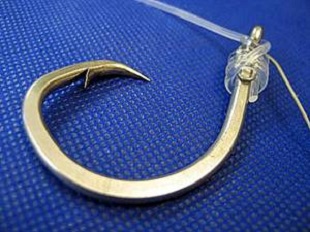
Leatherback sea turtles likely to go extinct under Trump administration policy, lawsuit argues
Leatherback sea turtles are likely to be “effectively extinct within 20 years” if two new federal permits for fishing off the coast of California go into effect, environmental groups claim in a new lawsuit. In April, the Trump administration granted new two-year “exempted fishing permits” to two California-based vessels in what are currently protected waters.,,, National Marine Fisheries Service,,, the federal agency said the permits “are not likely to jeopardize the continued existence of any listed species or result in the destruction or adverse modification of critical habitat.” The longline fishing will have to halt immediately if “one mortality of a leatherback sea turtle is observed.>click to read<14:03

Maine lobster fishery agrees to deep cuts to protect whales
After a long and difficult week in late April in which the National Oceanographic and Atmospheric Administration’s Marine Mammal Take Reduction Team met to address protections for the endangered right whale, the Maine lobster fishery now has a sense of what the future holds. There were some hard battles along the way, in which we lobster industry advocates fought to ensure a viable Maine fishery, both for today’s lobstermen and for future generations. By Patrice McCarron >click to read<14:39
Competing interests – “The farmer and the cowman should be friends,” according to Richard Rodgers’ lyrics in “Oklahoma!” Can a similar peace pact be visited upon Maine’s lobstermen and the advocates of whale safety? >click to read<
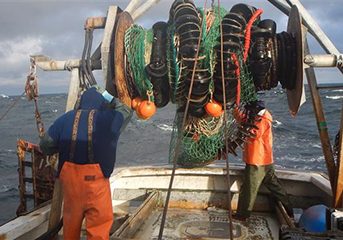
New England, Mid-Atlantic fishery councils ponder switch to electronic vessel trip reporting
The move, which is under an omnibus framework action, would require commercial fishing vessels to fill out all of their vessel trip reports electronically, eliminating the ability to fill out paper forms. Electronic vessel trip reporting (eVTR) has been an established way to submit reports since 2013, according to Karson Coutre of the Mid-Atlantic council. ,,, While the Mid-Atlantic council is the one considering the move to mandatory eVTR, the New England Fisheries Management Council (NEFMC) will also need to consider the implications of transitioning to mandatory electronic reporting. >click to read<16:39
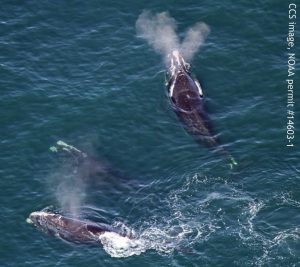
NOAA Team Reaches Consensus on Right Whale Survival Measures
“This is hard work. The Team members brought not only their expertise but also their passion for the people and communities they represent to the table. Everyone understands that there are real and difficult consequences to fishermen as a result of the choices made in this room,” said Sam Rauch, NOAA Fisheries deputy assistant administrator for regulatory programs.,,, The group will meet in Providence, Rhode Island for four days. At the end of the meeting, they hope to agree on a suite of measures that will reduce right whale serious injuries and deaths in fishing gear in U.S. waters from Maine to Florida to less than one whale per year, the level prescribed by the Marine Mammal Protection Act. >click to read<09:15
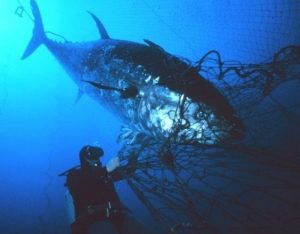
Tuna Fishermen Say Agencies Rejected Input on New Rules
Representing large net-fishing vessels in the Pacific Ocean, the American Tunaboat Association filed a lawsuit Wednesday claiming government fishery regulators left industry experts in the dark about a forthcoming biological opinion that could limit commercial tuna operations. The complaint, filed by Baker Botts attorney Megan Berge in Washington, D.C., federal court, names as defendants Commerce Secretary Wilbur Ross, the National Oceanic and Atmospheric Association and the National Marine Fisheries Service, or NMFS. >click to read<21:43
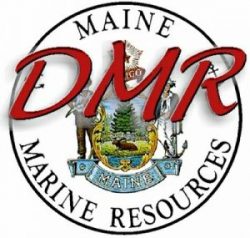
Maine cancels right whale meetings with lobster industry
The state Department of Marine Resources is canceling a series of meetings with the lobster industry next week to talk about right whale protections, saying it has nothing new to present to lobstermen until federal officials clearly identify a risk reduction target. The National Marine Fisheries Service, which is tasked with protecting right whales from entanglement in lobster fishing gear, is introducing new scientific methodologies and analyses that could cause large-scale changes to the lobster industry, Commissioner Patrick Keliher said. >click to read<11:11

Another Government Shutdown Could Sink Scallop Fishery Profits
The world is smitten with scallops. Their subtle sweetness and firm but somehow delicate bite has many wanting more. When I previously worked in seafood sales, I couldn’t believe how much chefs in Los Angeles would pay to put the great New Bedford sea scallop on their menus. We’re talking over $35 per pound for the big ones. I’d think to myself, “These chefs know there are scallops in the Pacific, right?” >click to read<15:39

































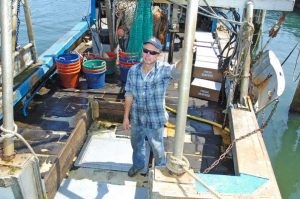
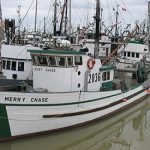

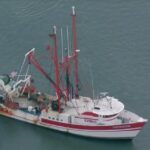




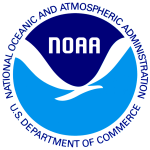
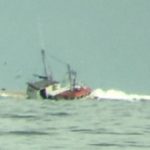
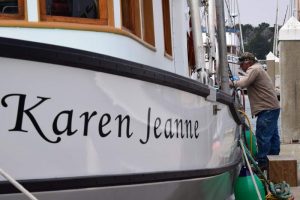




NOAA/NMFS Seeks Comments on Proposed Measures for the Jonah Crab Fishery
NOAA Fisheries seeks comments on proposed measures for the Jonah crab fishery that complement the Atlantic States Marine Fisheries Commission’s Interstate Fishery Management Plan for Jonah Crab.,,, Proposed measures include limiting Jonah crab harvest to those who already have a limited-access American lobster permit, a minimum size, protection for egg-bearing females, and incidental catch limits.These proposed regulations do not expand trap fishing effort. They propose to regulate the catch of Jonah crabs that is already occurring in the American lobster fishery. >click to read<13:20
Share this post